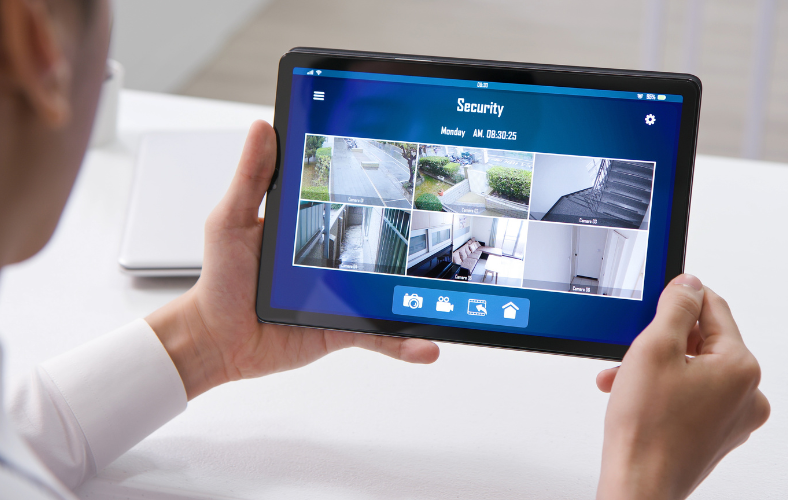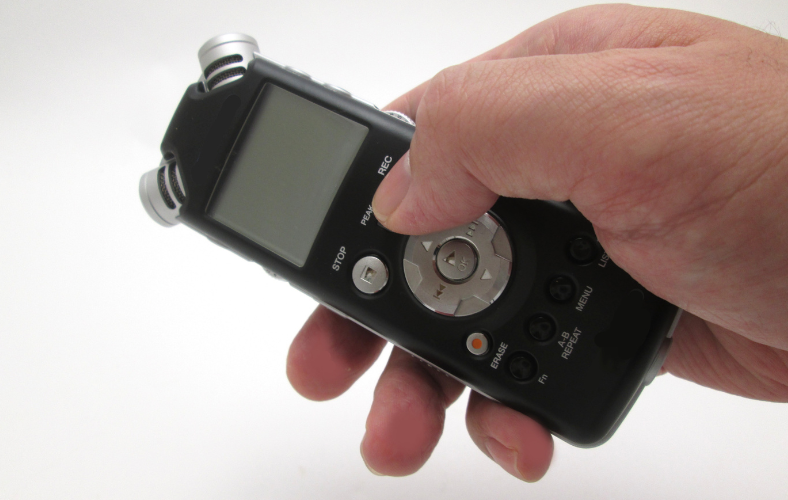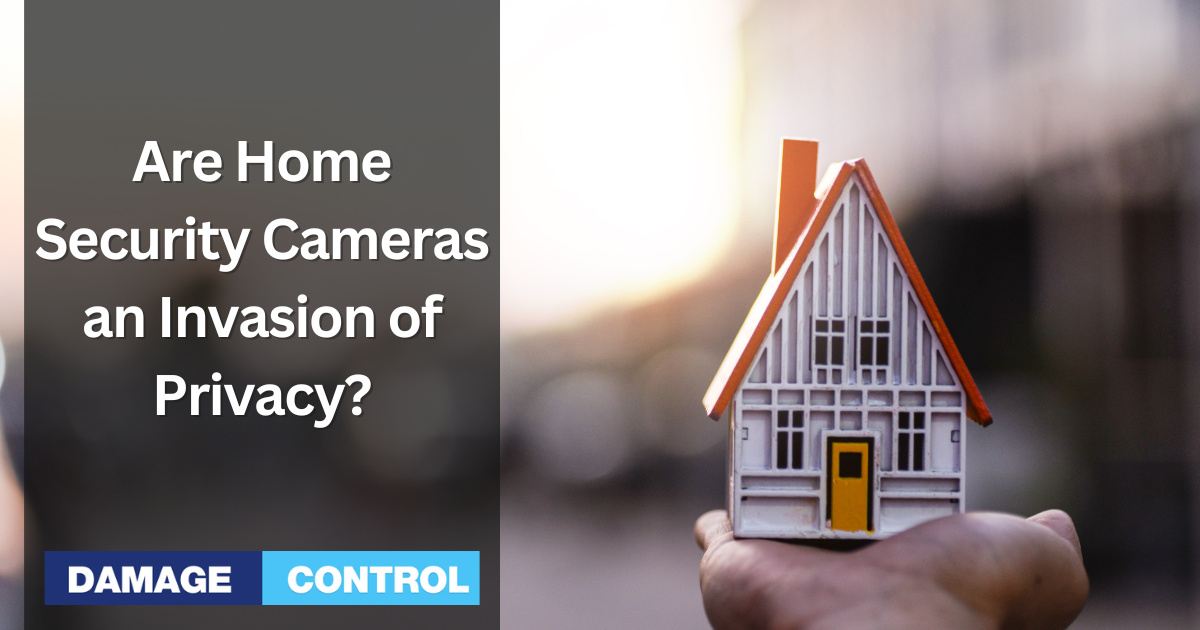Home security cameras aren't generally considered an invasion of privacy, but they can be under specific circumstances.
Home security cameras have become extremely popular recently as packages are stolen from porches and intruders are recorded breaking in.
As simple as these devices may seem, they are layered with complexity. On one hand, they are the unblinking eyes that help keep our homes safe.
But, beneath this comforting facade, there's another side.
Eyeing the Debate: Privacy vs Security
An important question bubbles to the surface: Are these same devices that promise safety infringing on our personal space? Are they stealthy invaders, potentially eroding the sanctity of our privacy? The debate, undeniably fiery, burns bright in the public consciousness.
This debate, in essence, revolves around a balancing act: the security of your home versus the privacy within its four walls. Home security cameras serve as a potent symbol of this struggle.
So, let's embark on an exploration of this contemporary issue. From understanding the primary concerns to assessing their impact on our lives, we'll attempt to peel back the layers of this complex debate.
Intrusion or Protection: Unveiling the Truth

A home security camera, your watchful guardian, can deter criminals and capture evidence. Yet, it might also capture private moments, sparking the debate: protection or intrusion?
Before delving further, let's list some significant points of contention:
- Expectation of Privacy: Does a person in their own home or a visitor expect privacy?
- Captured Footage: Who views the recorded footage and under what circumstances?
- Data Storage and Security: How secure is the data captured by these devices?
- Consent: Are all parties aware and agreeable to being recorded?
Each point, when dissected, brings forth a fresh perspective.
What Is Expectation of Privacy?
The expectation of privacy changes dynamically depending on our environment and what exactly we expect to remain private.
For example, you can't really expect to have a private conversation in a public place. At home, though, you have an expectation of privacy.
But security cameras at home may present a paradox. If cameras are constantly recording, do we still hold that treasured privacy within our four walls?
Of course there's a legitimate need to secure our homes from external threats. On the other hand, we need to maintain our personal space and privacy.
However, it's important to remember that these two aspects – security and privacy – are not necessarily polar opposites.
Striking a balance between these two facets is not an easy task, yet it's a crucial one. We need to understand and respect the boundary where the security benefit of having cameras doesn't start to overshadow our personal privacy. The key here is responsible usage.
When deciding where to place security cameras around your home, ask yourself these questions:
- Are the cameras being used only to monitor for security threats outside?
- If inside, are you sure want them to be in bedrooms?
- Putting cameras in bathrooms can be legally iffy, even in your own home
- Are the cameras recording every move even when it's clear there's no security threat?
The aim of a home security system should be to enhance security without trampling over the sacred grounds of personal privacy.
Questioning the Captured Footage
Next, we grapple with the issue of recorded footage.
- Who gets to watch it?
- Should it be kept under lock and key or freely accessible?
- How long do you keep the footage before it's deleted?
Clearly, this point is closely connected to privacy concerns.
If the footage is secured and accessed only when needed, privacy invasion is minimized. However, if it is viewed without reason or shared, it crosses the line into invasion of territory.
Probing into Data Storage and Security
Modern home security cameras, smart devices, store their footage in the cloud. Data leaks or hacks could lead to privacy invasions, a worrying possibility. Therefore, a crucial aspect to consider is the strength and reliability of data security measures in place.
Weighing the Importance of Consent

Last, but not least, the issue of consent. Are all parties in the home aware of the cameras? Consent does not eliminate privacy concerns, but it makes them more manageable.
In some states in the US, it's illegal to place hidden cameras in bathrooms even in your own home.
You also have to deal with state recording laws, because some states require that you notify someone that they're being recorded before you're allowed to do so.
16 states in the United States require two or more party consent for recording:
- California
- Connecticut
- Delaware
- Florida
- Hawaii
- Illinois
- Kansas
- Maryland
- Massachusetts
- Michigan
- Montana
- Nevada
- New Hampshire
- Pennsylvania
- Utah
- Washington
Balancing Act: Privacy vs Security
It's clear that home security cameras can, under certain conditions, infrive on privacy. But, if used responsibly, they provide invaluable security benefits. So, are they invaders or protectors? The answer largely depends on how they are used.
To mitigate privacy concerns, consider these recommendations:
- Ensure proper data security measures.
- Limit camera use to necessary areas.
- Secure footage and access it only when required.
- Make all occupants and visitors aware of the cameras.
In the end, it's all about balance. Security shouldn't overshadow privacy, and privacy should not impede security. Let's strive for a harmonious blend of both. To conclude, home security cameras are not inherently invasive. Instead, their potential to invade privacy rests largely in our hands.

